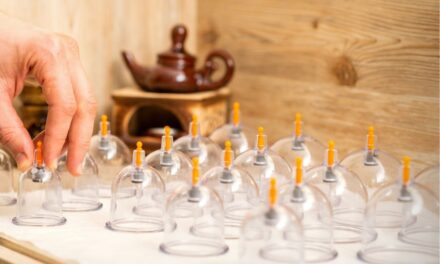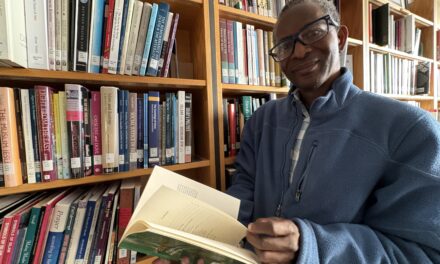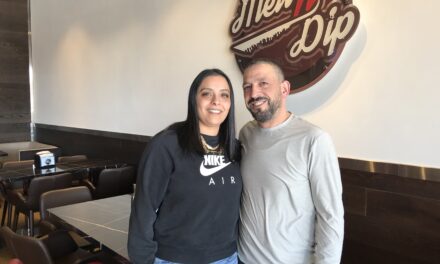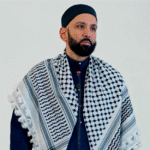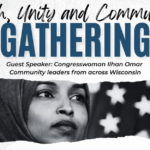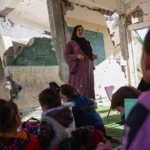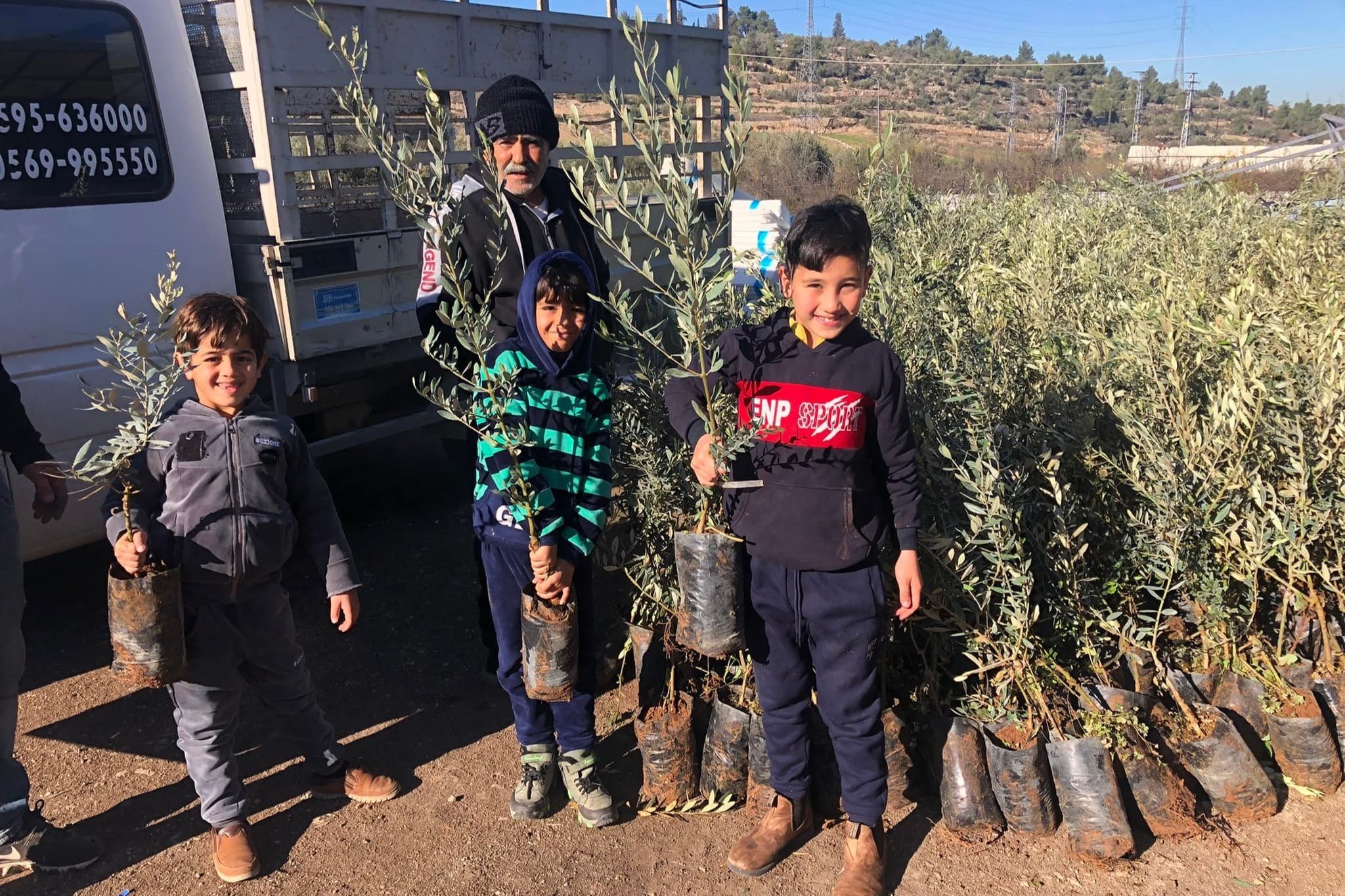
People in Masafer Yatta planting olive trees as part of the Madison-Masafer Yatta olive grove project.
Connecting with groups overseas, Madison-based Palestine Partners is committed to supporting women and youth in the West Bank. Led by Cassandra Dixon, the organization amplifies Palestinian livelihoods by way of human rights advocacy and volunteer work. The two main groups Palestine Partners works with are Women in Hebron, a fair trade craft cooperative employing women who produce hand-embroidered apparel and accessories, and Youth of Sumud, a team of human rights defenders who ensure the safety and security of Palestinian farmers, families and schoolchildren from Zionist settler violence.
Cassandra Dixon has been traveling to and volunteering in Palestine since 2006. She formed Palestine Partners in 2020 simultaneously as an act of solidarity with the Palestinian women artists of Hebron, and to resist complicity in Israeli apartheid, ethnic cleansing and genocide.
“A large number of settlers are from the U.S., and they’re well-funded by huge nonprofits in the U.S. and the Israeli government,” Dixon mentions. “If our actions (or our inactions) here, by allowing our tax dollars to be used to support these nonprofits that support these settlers, we’re going to eventually see what we were silent about and be devastated by it.”
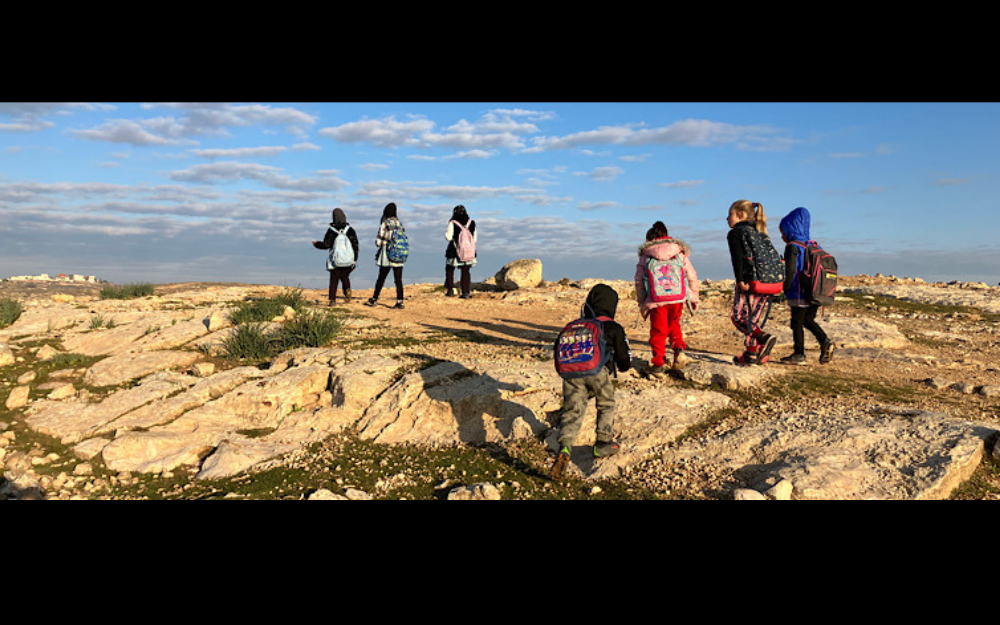
Schoolchildren in Masafer Yatta
Palestine Partners supports Women in Hebron by selling their beautiful shawls, scarves, handbags, pillowcases, jewelry and other crafts in the U.S., authentically made by women artists in Palestine. They sell such items at local markets and community events around Wisconsin, then send the money back to the organization. Women in Hebron co-founder Laila Hasan has traveled the world for speaking tours, sharing her art and organization’s work.
“It’s a way of creating some income for these women, and a way that they can create income on their own schedule when it works for them instead of having to face all of the challenges of getting to a job,” Dixon explains. “It’s especially worse now because of so many more closures.”
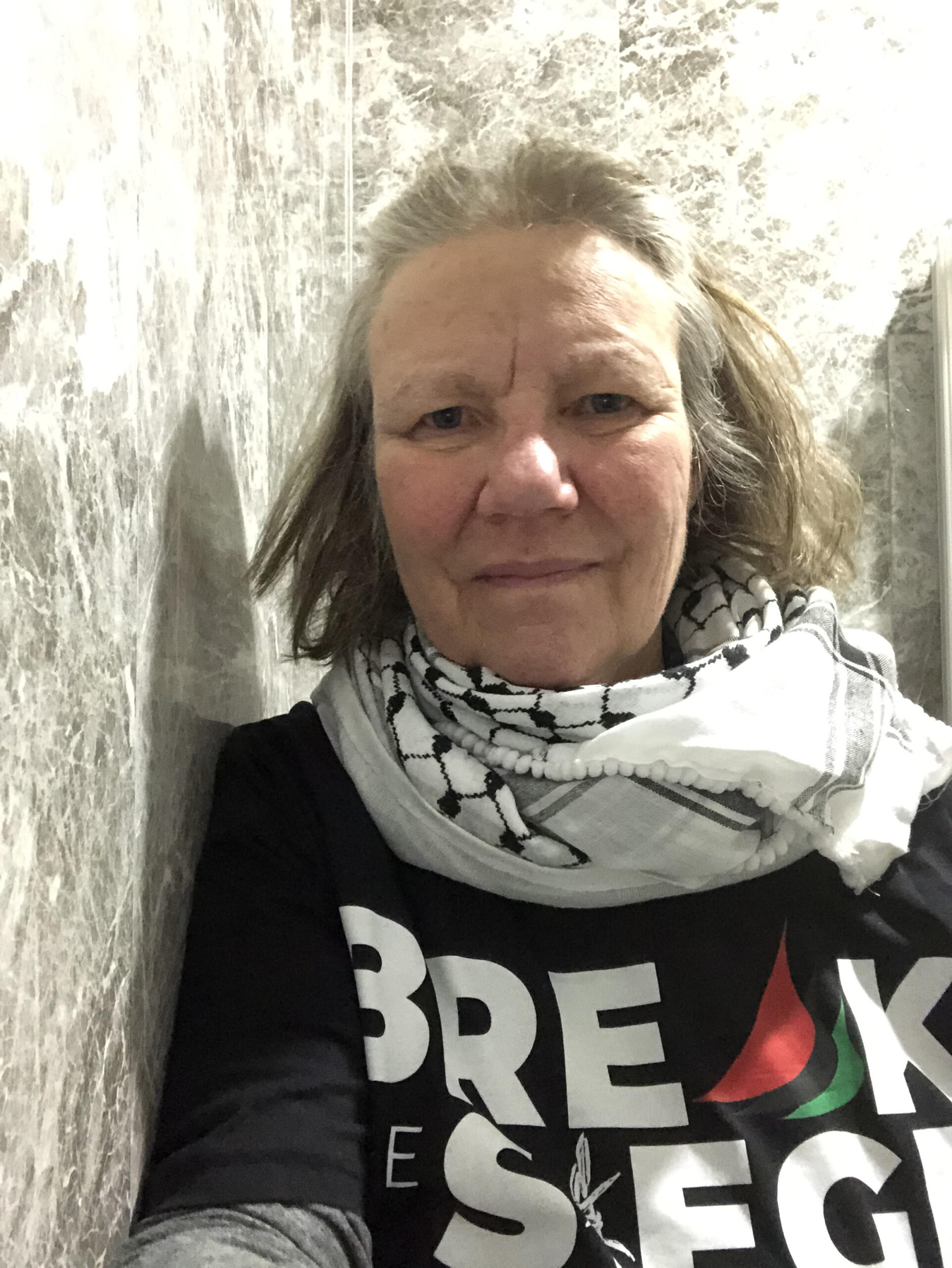
Cassandra Dixon, founder and executive director of Palestine Partners
Women in Hebron was the first woman-owned business in Hebron’s Old City Market, created in 2004. “That was a lot of work for them, culturally and in their community,” Dixon continues. “On top of that, it’s an area with five illegal settlements ringing it, so they’re facing major challenges with settlers running through like gangs.”
The cooperative’s business model had been based around purchases made by visitors, but the presence of violent settlers is a huge detriment to the area’s tourism.
“For the most part, people who actually live there can’t afford to purchase the embroidery at a rate that pays people enough for it,” Dixon adds.
Also it is now virtually impossible to ship individual orders from Palestine. Dixon began by selling crafts leftover from Hasan’s pre-COVID speaking tour, eventually being sent more boxes of crafts from Women in Hebron as items went.
The combined factors of COVID and Israeli occupation have forced the brick-and-mortar shop of Women in Hebron to frequently close. Even when it is open, there are very few people in the area buying anything, according to Dixon.
“They faced a need to take the products to the money instead of bringing money to the products, so that was why we started this. It started during COVID because that was an extreme situation, but the reality is that it hasn’t gotten any better for them, and in many ways it’s gotten much worse.”
Events that Palestine Partners partook in this past year include the Madison Night Markets, the Humanitarian Aid for Gaza Silent Art Auction and the Madison Fair Trade Holiday Festival.
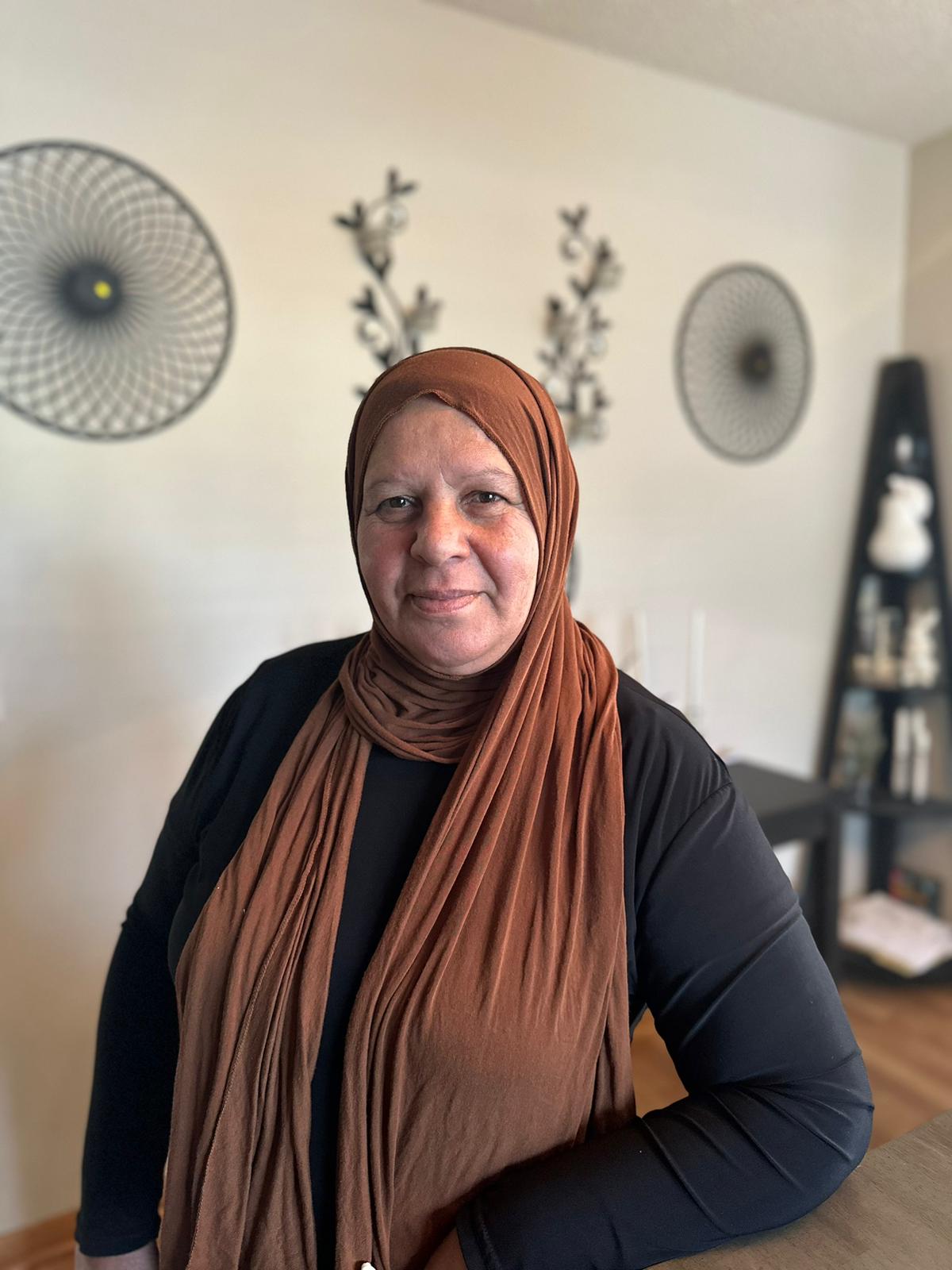
Laila Hasan, co-founder of “Women in Hebron,” a fair trade craft collective of Palestinian women who make jewelry, handbags and tablecloths to sell at the market.
With Youth of Sumud, Dixon and volunteers accompany Palestinian youth and farmers as they tend to their land in the West Bank’s South Hebron Hills, engaging in nonviolent acts of resistance.
“They are also facing similar evil,” Dixon confirms. “Their communities are really under attack, and much more so now than they were even a few years ago.”
New Israeli checkpoints, settlements and outposts have been constructed between villages in this area, making them vulnerable to violence and harassment from Zionist settlers and soldiers. Dixon describes these communities’ struggles to continue going about their day-to-day lives as an existential one.
“It’s now impossible for people to move freely. Settlers have destroyed hundreds and hundreds of olive trees, and have stolen grazing land, and have killed sheep and donkeys. Children have had to stop going to the school that they went to for many years.”
Youth of Sumud formed in 2017 in response to these threats. According to their website, over 1,000 Palestinians and 16 pastoral communities in the South Hebron Hills have been forcibly displaced from their lands since October 7, 2023.
Women in Hebron is a cooperative dedicated to empowering Palestinian women and families economically. They also focus on preserving Palestinian culture by passing down traditional handicraft products to younger generations.
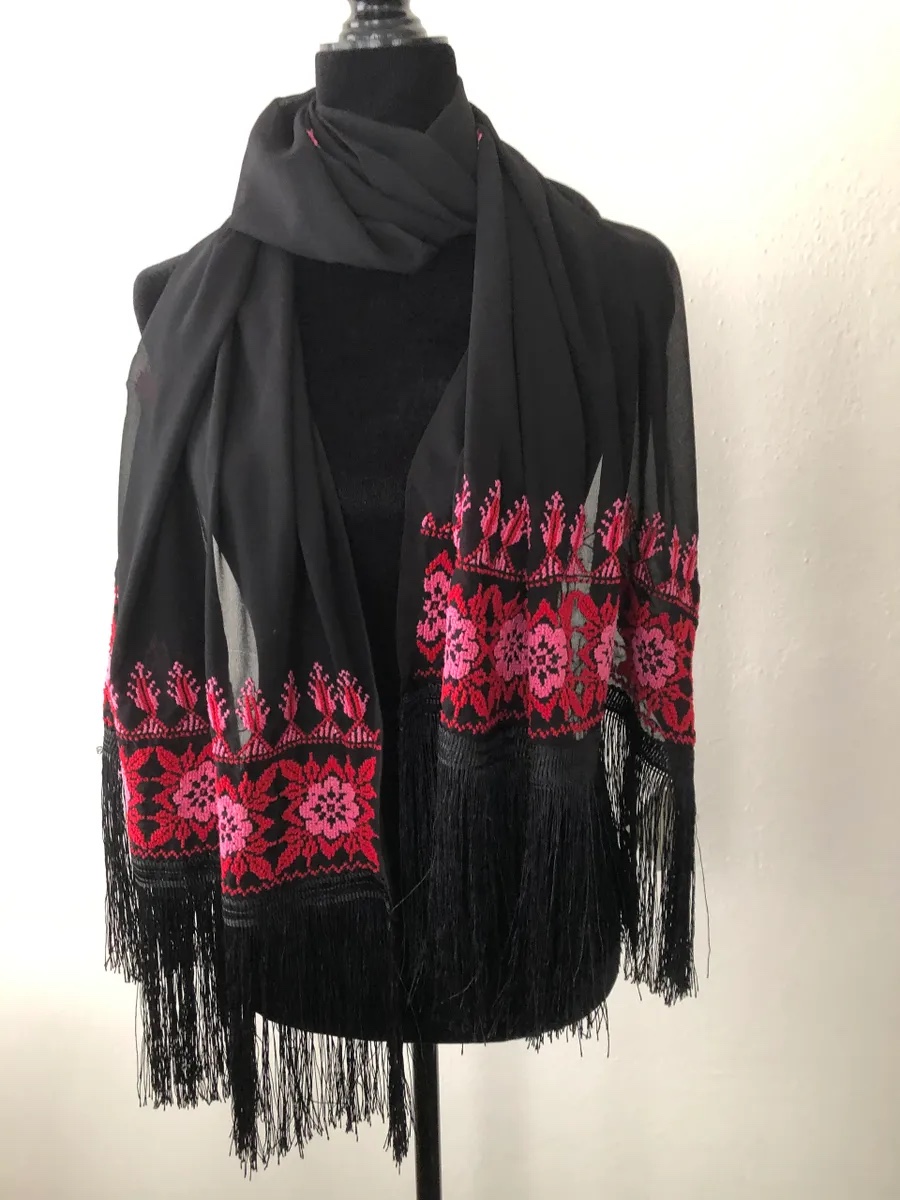
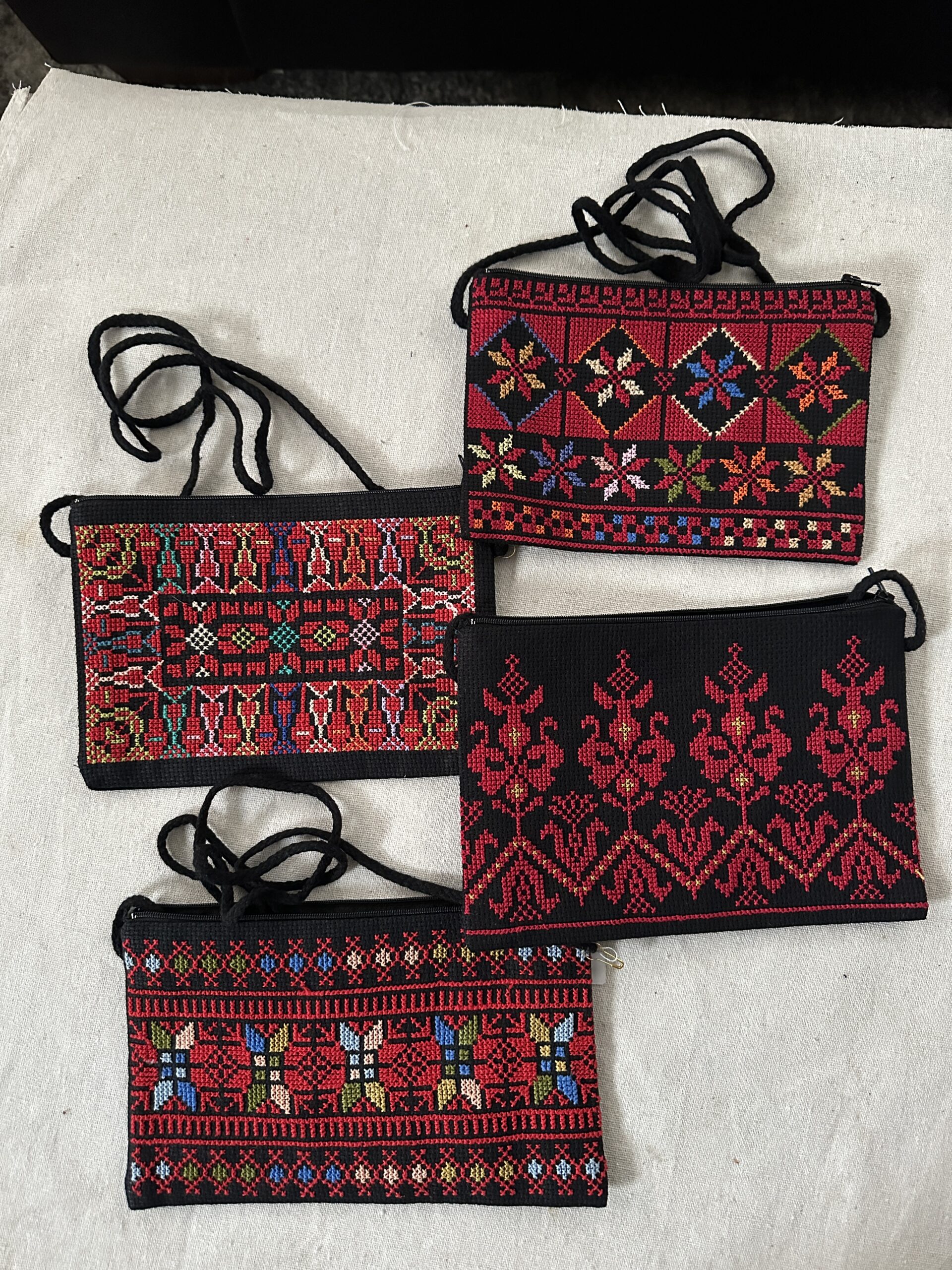
Embroidery from the Al Khalil /Hebron area
“The settlers have always been well-funded, largely from the U.S., but they have just really ramped that up and have been given extensive armaments and army vehicles and bulldozers,” Dixon notes. “They’ve been deputized as a vigilante force and are able to act with more impunity than they ever have.”
Dixon’s most recent visit to Palestine had been this past November, and she was shocked by the visceral bleakness she saw. “Every single person I know there has aged 20 years in the last 15 months. People are not getting any rest or feeling that there’s a certainty of tomorrow.”
When Palestine Partners is not actively volunteering with Youth of Sumud, they amplify the group’s work on social media. Beginning in 2023, Palestine Partners has also supported the Netherlands-based Plant an Olive Tree Foundation, who sponsor new olive trees to be planted throughout the West Bank.
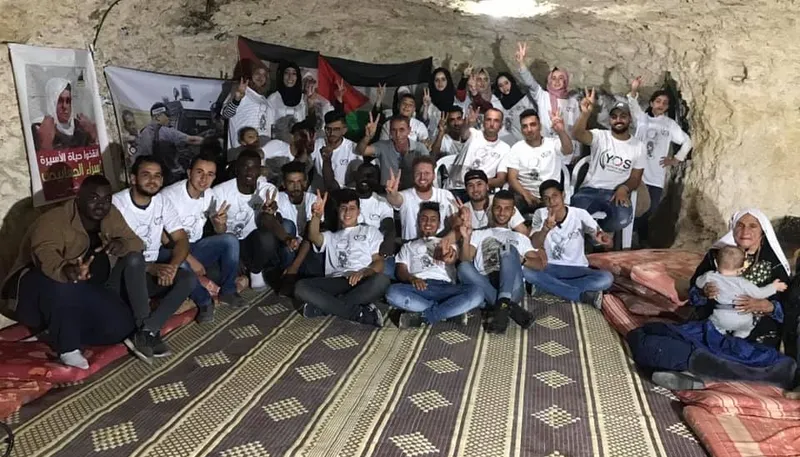
Youth of Sumud formed in 2017 in the South Hebron Hills in response ongoing settler and military aggression and violence against farmers, families and school children in the area.
Within this project, Palestine Partners specifically sponsors the Madison-Masafer Yatta Grove, where 12 trees have already been planted in 2025, bringing its grand total to 768. Continuing to plant and replace olive trees is crucial to Palestinians’ survival off of their lands, in spite of the constant threats of land being seized and groves being destroyed by Zionists.
“It’s for people anywhere, and they don’t need to be in Wisconsin or even the U.S.,” Dixon explains. “I got a chance to see some of those olive trees, both surviving ones and those that have been destroyed. There are villages that I’ve visited in the past that are now flat and gone.”
Another campaign to fully replace a lost herd of sheep is underway, supporting Palestinian livelihoods as shepherds.
Dixon is pleased to see an increasing number of online efforts to help sell Palestinian-made products. In addition to Palestine Partners, she is involved in the Madison-Rafah Sister City Project and the Madison chapter of Playgrounds for Palestine.
She concludes, “It’s not enough for a small nonprofit to stand with Palestine. This is the moral question. We need to struggle all the time right now with what solidarity looks like. If we ourselves are appalled by this genocide and ethnic cleansing, and we want to do something but don’t know what the heck to do, that’s how these projects have come into being. What could we actually do that would help someone stay here another day, or another week?”

